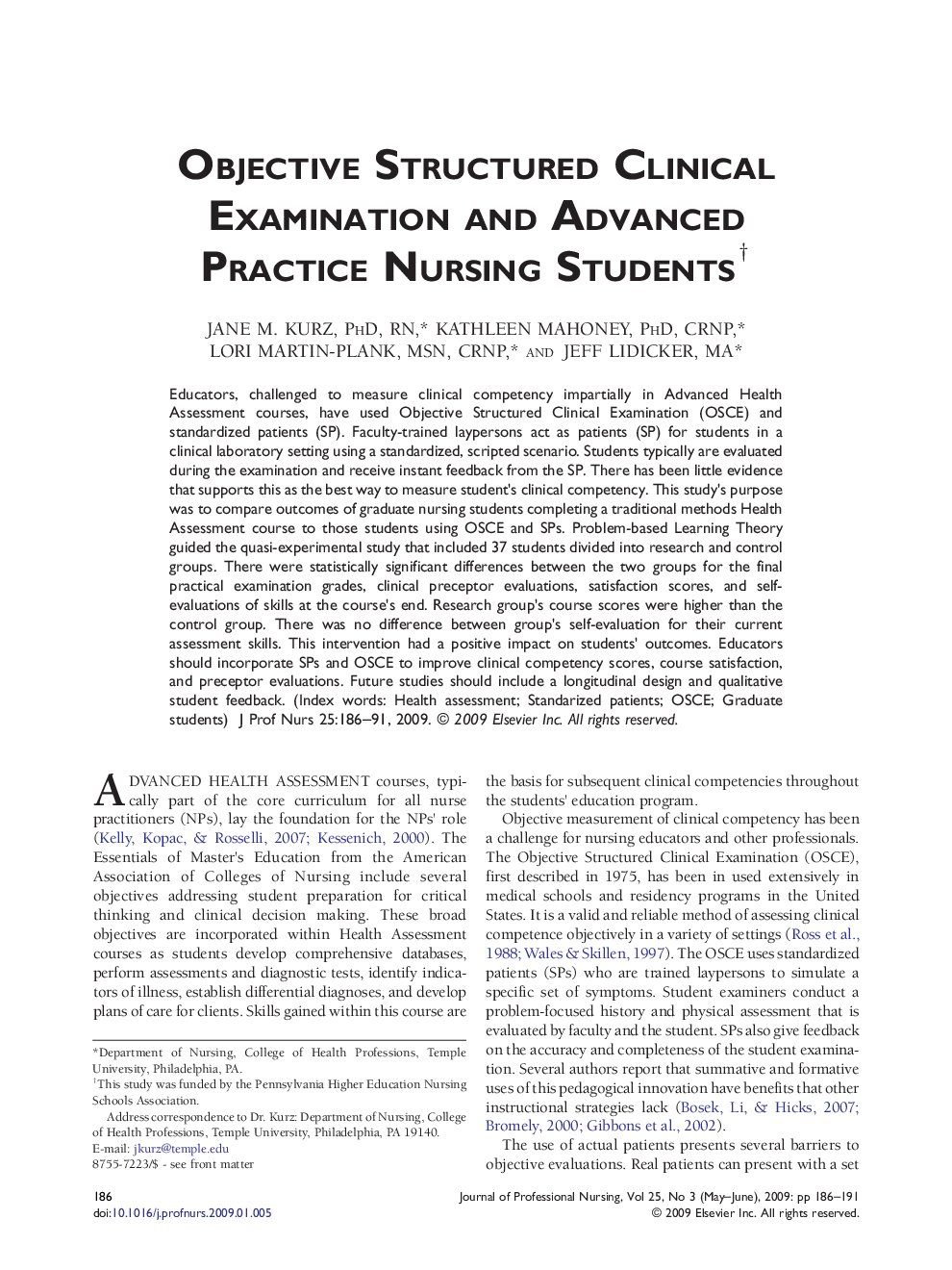| Article ID | Journal | Published Year | Pages | File Type |
|---|---|---|---|---|
| 2668768 | Journal of Professional Nursing | 2009 | 6 Pages |
Educators, challenged to measure clinical competency impartially in Advanced Health Assessment courses, have used Objective Structured Clinical Examination (OSCE) and standardized patients (SP). Faculty-trained laypersons act as patients (SP) for students in a clinical laboratory setting using a standardized, scripted scenario. Students typically are evaluated during the examination and receive instant feedback from the SP. There has been little evidence that supports this as the best way to measure student's clinical competency. This study's purpose was to compare outcomes of graduate nursing students completing a traditional methods Health Assessment course to those students using OSCE and SPs. Problem-based Learning Theory guided the quasi-experimental study that included 37 students divided into research and control groups. There were statistically significant differences between the two groups for the final practical examination grades, clinical preceptor evaluations, satisfaction scores, and self-evaluations of skills at the course's end. Research group's course scores were higher than the control group. There was no difference between group's self-evaluation for their current assessment skills. This intervention had a positive impact on students' outcomes. Educators should incorporate SPs and OSCE to improve clinical competency scores, course satisfaction, and preceptor evaluations. Future studies should include a longitudinal design and qualitative student feedback.
